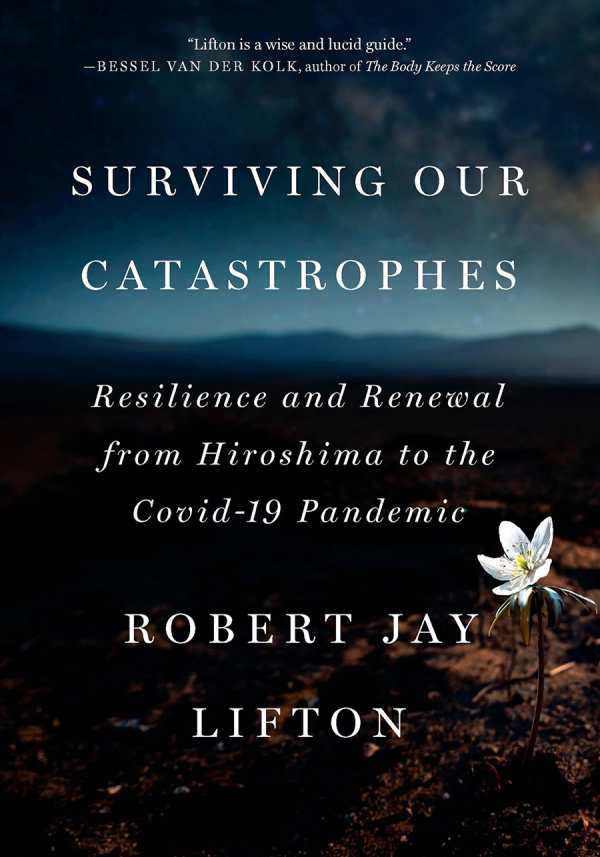Surviving Our Catastrophes
Resilience and Renewal from Hiroshima to the COVID-19 Pandemic
Robert Jay Lifton’s thought-provoking book Surviving Our Catastrophes says that survivors can teach the world much about resilience.
Two assumptions function as the starting point in the study represented by this book: one, that a society affected by catastrophe must recognize and accept its reality if it is to heal. And two, that survivors are crucial in this process. Thus, the book examines the thought and behavioral patterns of survivors after cataclysmic disasters, looking into what those who retain a sense of purpose and the will to live have in common. It also comments on what’s wrong, and what still needs to happen, in response to COVID-19, which proved quite difficult to manage on a global scale.
Lifton—himself a survivor—is fascinated by catastrophes. He studies both calamities and human beings’ collective renewal efforts in their aftermaths. The book examines harrowing tragedies in the twentieth and twenty-first centuries, including the bombings of Hiroshima and Nagasaki and the Holocaust, which receive considerable attention. The 1918 flu pandemic, the AIDS epidemic, and global warming are also treated, with scrutiny applied to the behaviors of their survivors and those who emerged as leaders.
Survivors respond in phases, Lifton says—death imprint, psychic numbing, search for meaning, and sometimes the undertaking of a mission. It is the last two phases that can create leaders. A noteworthy example is the case of an unidentified, low-ranking city official who, during the months following the bombings in Japan, organized cooperative efforts and found food and clothing for other survivors. But when such processes go awry, Lifton warns, situations can become violent: the book attributes the My Lai massacre during the Vietnam War to “angry and violent mourning.”
Surviving Our Catastrophes is an absorbing sociological study focused on survivors—the keys to social renewal after disasters strike.
Reviewed by
Carolina Ciucci
Disclosure: This article is not an endorsement, but a review. The publisher of this book provided free copies of the book to have their book reviewed by a professional reviewer. No fee was paid by the publisher for this review. Foreword Reviews only recommends books that we love. Foreword Magazine, Inc. is disclosing this in accordance with the Federal Trade Commission’s 16 CFR, Part 255.

